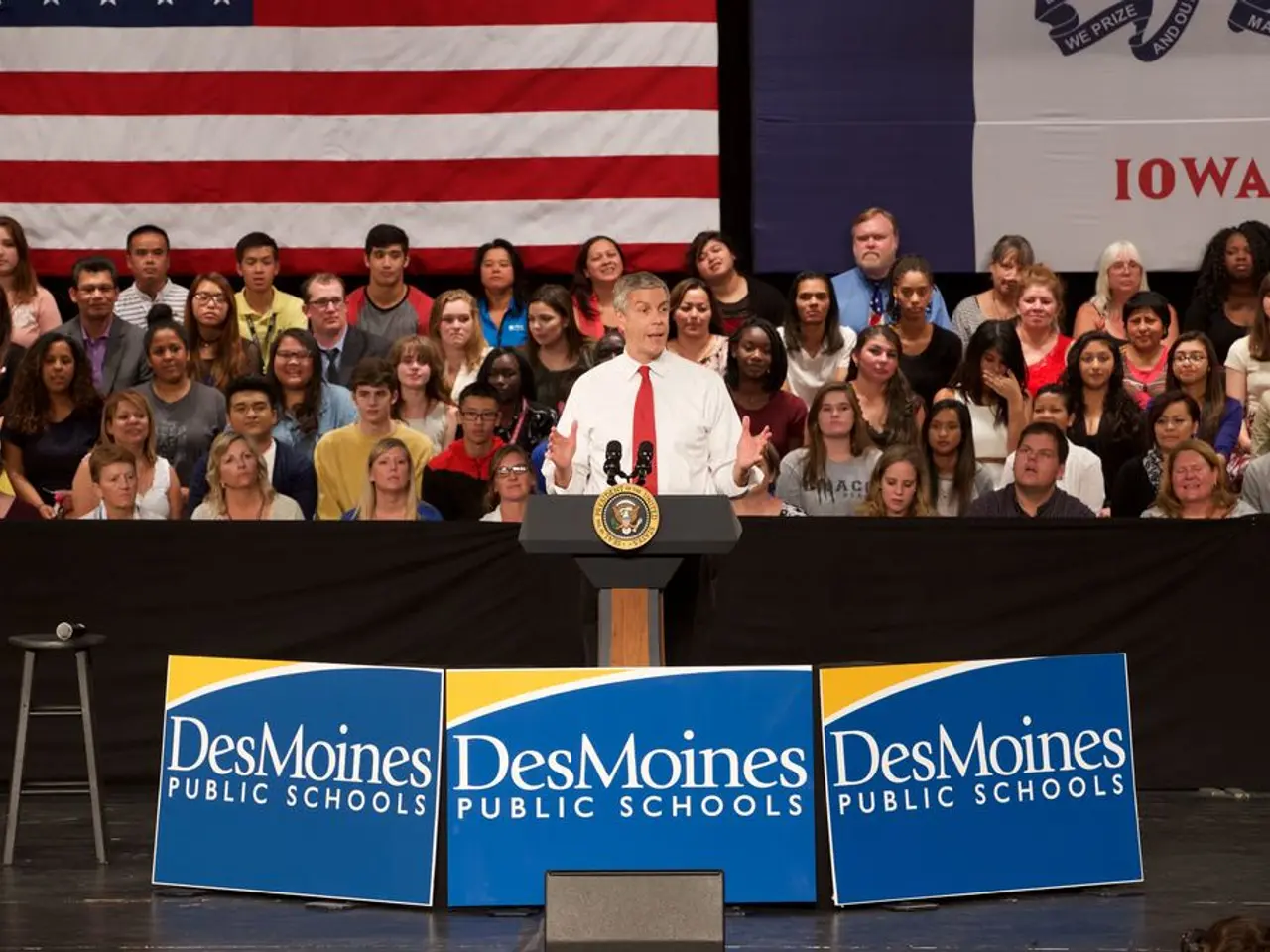DC Crackdown Secures Trump's Desires, Democrats Struggle with Counteraction
In the current political climate, the Democratic party is grappling with the complexities of crime and justice issues, as these topics often reveal internal divisions and touch upon sensitive societal and racial themes that are central to the party's heritage and ideology.
Democratic leaders, including Washington D.C. Mayor Muriel Bowser and other city officials, advocate for long-term crime solutions that focus on comprehensive community support rather than relying on shows of federal force or dramatic crackdowns. They propose several approaches beyond "window dressing," such as:
- Investing in community-based programs that tackle the root causes of crime, like homelessness and poverty, instead of solely relying on policing or military-style federal interventions.
- Improving social services and economic opportunities to help reduce crime sustainably. This includes providing support for mental health, addiction treatment, education, and job training to address underlying social issues.
- Building trust between police and local communities to encourage crime reporting and cooperative crime prevention. Some leaders argue that aggressive federal enforcement can undermine community safety feelings.
- Rejecting politically motivated "show of force" tactics that do not correspond with crime data indicating that violent crime, including in D.C., is at or near historic lows.
Mayor Bowser and other Democratic mayors emphasize the importance of factual context and data-driven approaches, acknowledging improvements in crime statistics and advocating for solutions that foster real and lasting public safety, not just temporary or symbolic crackdowns. They frame their long-term approach as holistic and community-focused rather than tactical federal interventions.
While some critics and experts dispute the interpretation of crime statistics and call for stronger law enforcement responses, Democratic leaders consistently position their strategies as prioritizing sustainable safety through social investments and improved public trust over federal shows of force or militarized tactics.
The political landscape is further complicated by the actions of former President Donald Trump, who pardoned 1,600 insurrectionists and violent cop beaters, according to Rep. Jamie Raskin. Trump's use of the military for political purposes, as evidenced by military vehicles being lined up near the Washington Monument, has also been criticized by Maryland Gov. Wes Moore.
The Democrats' approach to crime and justice has been shaped by historical events, such as the crime bills written by President Bill Clinton and then-Sen. Joe Biden in the 1990s, which boosted law enforcement funding, expanded the death penalty, and mandated life in prison for criminals with three or more felony convictions. The political impact of these bills haunted Hillary Clinton in her 2016 primary campaign and Joe Biden in his 2020 White House bid.
The murder of Minnesota man George Floyd by a police officer in 2020 and subsequent nationwide protests pushed the Democratic party to the left amid outrage at police brutality and a justice system that often fails Black Americans. However, some progressive activists' calls for the defunding of the police handed a priceless political weapon to Republicans and alienated many moderates and independents.
In the current political moment, Washington D.C. is facing challenges, with the GOP-led Congress cutting $1 billion from the city's budget, a move that local officials warn will impact public schools, public safety, and the overstretched police department. President Donald Trump also announced a takeover of DC's Metropolitan Police Department.
As the city grapples with 100 homicides this year, White House press secretary Karoline Leavitt stated that homeless people in the city have a choice of shelters, addiction and mental health services, "or jail." However, she had no specifics on any new administration housing or social services options or long-term care and solutions.
In the face of these challenges, the Democrats lack a powerful figurehead to counter Trump's presidency. Great politicians are those who intuit the electorate's emotions and fears, and shape persuasive arguments and policy. The Democratic party must navigate these complexities to present a compelling vision for crime and justice that resonates with voters.
- In the Democrat-led climate, political discourse revolves around crime and justice, with leaders advocating for policies that invest in community programs, improve social services, and build trust between police and local communities.
- The Democrats' approach to crime and justice is steeped in historical events, as they navigate the political implications of previous policy-and-legislation such as the 1990s crime bills, which boosted law enforcement funding, and aim to foster sustainable safety through social investments and improved public trust.
- As the political landscape is affected by war-and-conflicts, general-news events, and crime-and-justice issues, the Democrats need a powerful figurehead who can intuit the electorate's emotions and present a persuasive vision for crime and justice that resonates with voters.






